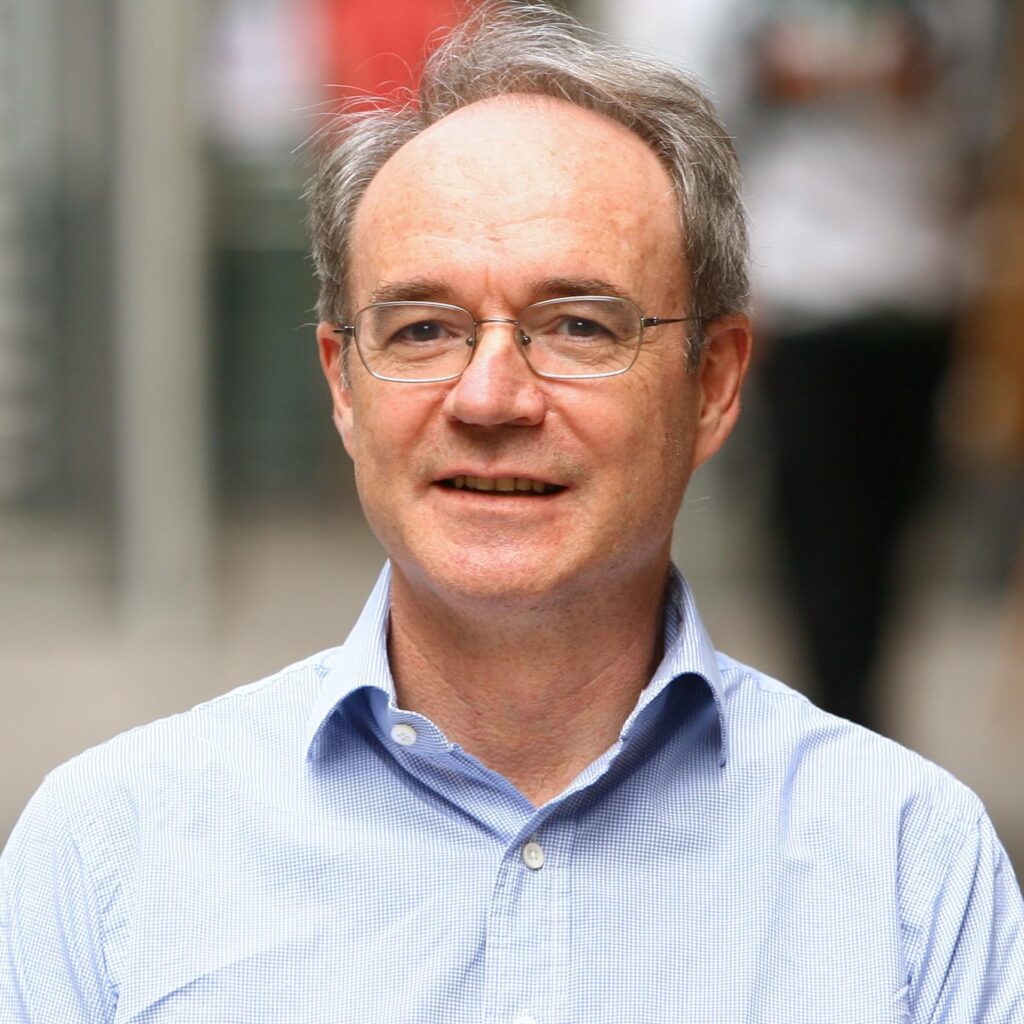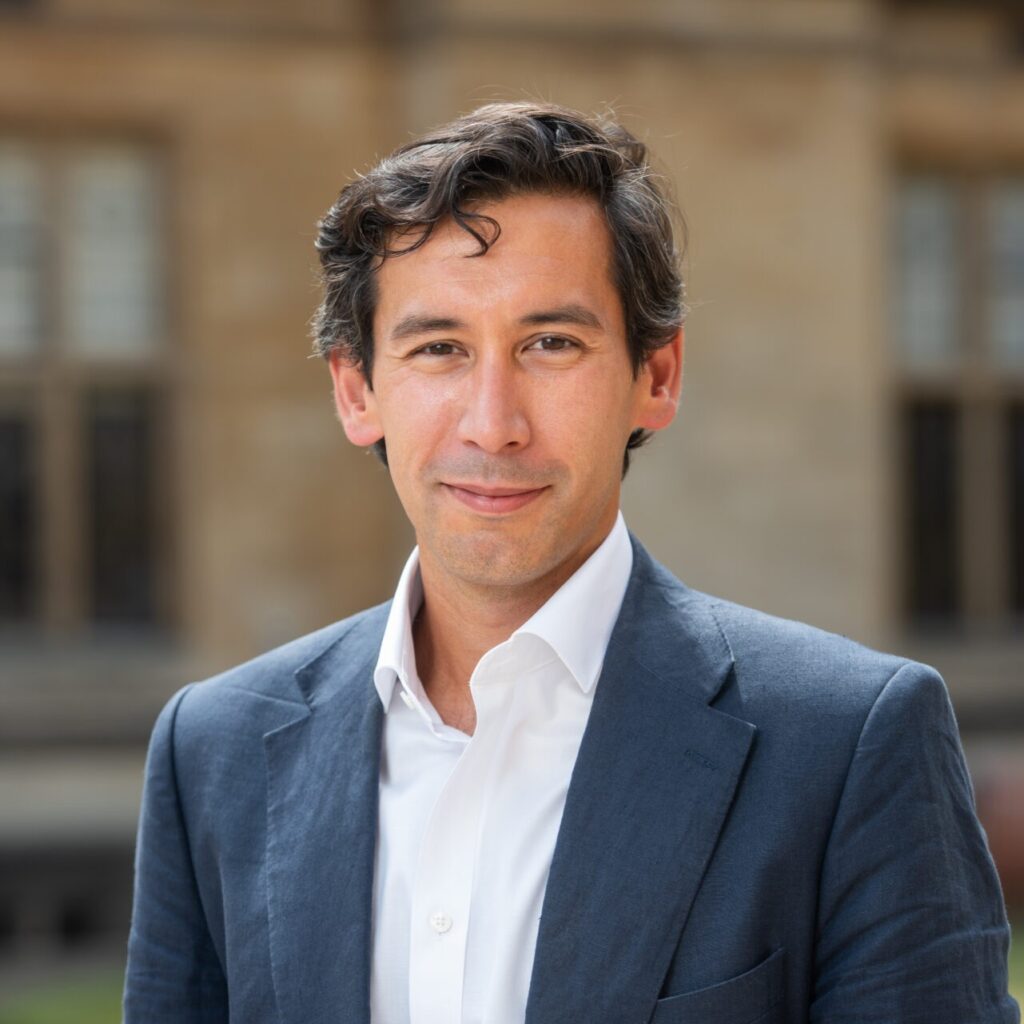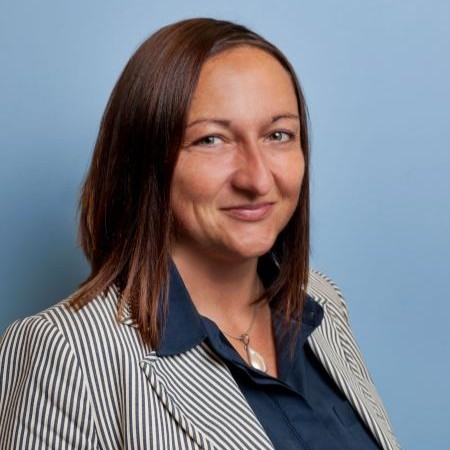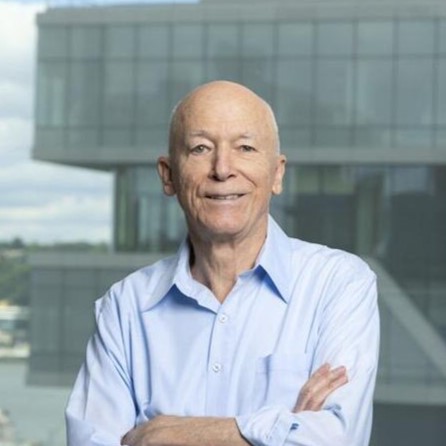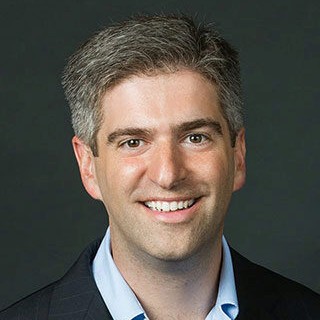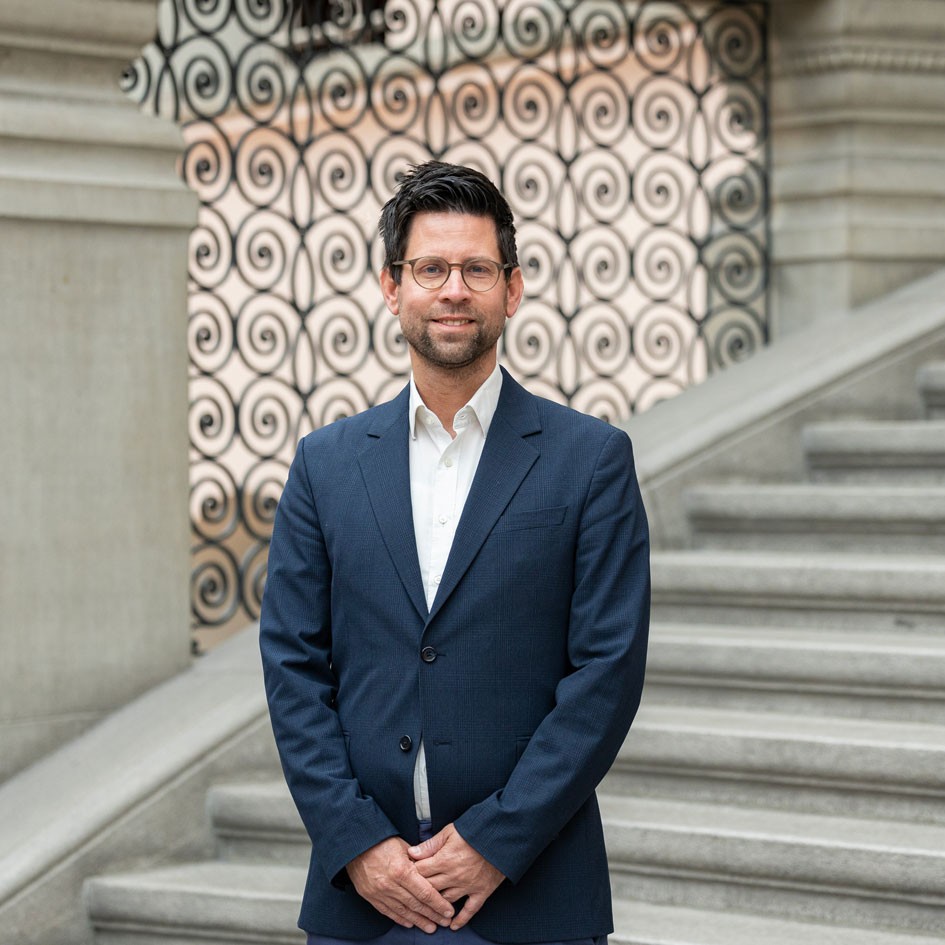Financial Economics of Climate and Sustainability
Finance will be instrumental in facilitating the transition to lower-carbon economies and dealing with the consequences of climate change. This collaborative global doctoral reading group prepares faculty, post-docs, researchers, and doctoral students in the emerging field of climate finance. See below for the 2026 reading list, the form for coordinators to apply for your institution to participate, and the form for coordinators to submit the list of participants by 15 January 2026. FECS begins on 3 February 2026.

2026 FECS Reading List
The 2026 FECS reading list is available here. This reading list is subject to change and the updated version will be available to registered participants on the FECS Dropbox.
Why this collaborative global doctoral reading group?
Climate change is one of the most critical issues facing the planet and will require massive flows of capital. Finance will be instrumental in facilitating the transition to lower-carbon economies and adapting to the consequences of climate change. We will need far more research in climate finance and professors trained to teach this new material. Financial Economics of Climate and Sustainability (FECS) seeks to be an important, timely, and catalytic development in the climate finance space designed to support the development of the next generation of scholars and educators and to create a community of researchers in this field. This forthcoming book chapter by Peter Tufano provides the logic of the course as well data on participants and the growth of the field of Climate Finance.
A global reading group, delivered locally
FECS has both global and local elements. The twelve, two-hour synchronous Core Sessions, taught by scholars at nine universities, are available to students globally, but the experience is customized locally at each participating school by a local faculty convener. Schools or government bodies determine locally whether and how to offer the reading group. At some schools, a version of FECS is offered for credit, and local instructors may hold additional sessions and set course requirements (typically a paper). Elsewhere where a course is not available for credit, local conveners may permit students to audit the course, offer enrichment sessions, or supervise independent research projects. Contact your local coordinator for details.
To join us in FECS
FECS is available to scholars across the world. There are three simple steps to join. First, a faculty member or lead researcher agrees to be the local coordinator. Second, local coordinators collect the names and email details of participants and submit them to FECS. Third, before our first class in Feb 2026, FECS will send the participants information on joining, including details on the course Dropbox, Zoom links, and Slack channel.
Dates and Content
Each Core Session will provide an overview of the topic listed and cover 4-5 research papers. Core sessions of FECS will be taught from February 3 to April 28, 2026 on Tuesdays from 11:00-13:00 EST/EDT. Note that because of differing national practices of adoption of daylight savings times (e.g., US-Mar 8; UK/Euro-Mar 29), the time for the sessions with asterisks below may vary from the norm at your location. The sessions map to the 2026 FECS reading list, available here.
- Feb 3 – Introduction to climate science
- Feb 10 – Climate, Sustainability, Economic and Finance Theory 1
- Feb 17 – Climate, Sustainability, Economic and Finance Theory 2
- Feb 24 – Climate, Accounting, and Corporate Carbon Disclosures
- March 3 – Climate and Asset Pricing (Theory)
- March 10* – Climate and Asset Pricing (Empirics) (Note: Class at 11:00 EDT; for other participants check local time).
- March 17– OFF, no class
- March 24* – Sustainable Finance 1: Investing in Equity (Note: Class at 11:00 EDT; for other participants check local time).
- March 31 – Sustainable Finance 2: Investing in Debt
- April 7 – Climate, Banking, and Insurance (NEW)
- April 14 – Climate and Corporate Finance
- April 21– Nature and Biodiversity (NEW)
- April 28 – Climate and Household Finance; Wrap up
NEW: ELECTIVE SESSIONS
While we cover a great deal in 24 hours of core sessions, there is considerably more material in the rapidly growing field of climate finance. In 2026, we will experiment with a series of elective sessions, that complement the material in the core sessions. Elective sessions will be recorded and available to FECS participants. The current list of elective sessions is given below which include FECS community sessions where coordinators and participants are invited to share their work.
- Thurs, March 5: 11:00-12:00 EST. The Economics of the Energy Transition: Geoff Heal (Columbia)
- Thurs, April 2: 11:00-12:30 EDT. Impact Investing in Private Markets: Deeksha Gupta (Johns Hopkins), Jan Starmans (Stockholm School of Economics)
- Monday, April 13: 9:00-10:00 EDT. Transition Finance and Transition Planning: Ben Caldecott (Oxford)
- Dates TBD: Community presentations from FECS participants and organizations: Peter Tufano (Harvard) and others
If you are interested in suggesting an elective, please contact ptufano@hbs.edu
History of FECS
FECS is a voluntary collaboration between the members of the core teaching group, and has been supported by the Salata Institute of Climate and Sustainability since 2024. We initially welcomed students from 15 schools in 2023. By 2025, we had participants from 143 schools and 7 government bodies. Members of the core teaching team discuss the logic and content of the course—and the field of climate finance—in this session from the 2024 Accounting in a Sustainable World conference session. For an elaboration of our theory of change as well as information on the history and evolution of FECS, see this forthcoming book chapter by Peter Tufano.
Coordinator Actions
To sign up as an FECS coordinator, please complete this poll.
NEW: Registered coordinators should submit their list of participants on this password-protected site by 15 January 2026.
What is the role of a coordinator?
While FECS provides students a timely curated reading list, 24 hours of sessions by world-class academics, and additional resources, the research process needs local engagement and support. At each participating school or government body, we require that there be a local coordinator. At a minimum, the coordinator approves students who will join the FECS global reading group to ensure that they have the proper training to benefit from the material. In many organizations, coordinators have done much more than this, including connecting the material to other classes and seminars at their schools; convening FECS participants locally to form small groups; offering additional sessions; running short additional programs such as summer programs; offering a locally-graded version of the course by augmenting it with assignments and assessment; and organizing multi-school conferences. We strongly encourage local coordinators to build off the global platform to create local vibrant climate finance communities. In short, the role of the coordinator can be quite minimal or very expansive—depending on how you and your organization locally adapt the material for your school.
Is there any cost to my school or government body? Who supports this initiative?
No. The Core Session Faculty have come together to voluntarily offer this course and the Salata Institute for Climate and Sustainability at Harvard University provides administrative support for this initiative as part of its mission to broaden climate education. There is no charge to participating schools or students.
Can PhD researchers at financial regulators and agencies join FECS?
Yes. Increasingly, research staffs at financial regulators, central banks, and government agencies are conducting important research on climate finance. As most of these researchers graduated from their PhD programs before FECS was offered, they haven’t had the opportunity to cover this material. We welcome PhD researchers at these organizations to join FECS. Each group will need a convener, who will be the “gatekeeper” for assembling and submitting the list of participants. Participants will join on a private capacity as learners, rather than as an official basis. FECS runs on Dropbox, Zoom, and Slack, and participants will need to provide email addresses which will work with these commercial platforms.
What is theory of change of FECS?
FECS is a voluntary effort by faculty around the globe and it is motivated by a simple collective theory of change: (1) Solving the climate crisis will demand that the financial system deploys trillions of dollars a year across the globe; (2) researchers and educators need to take a leadership role in education and research to support this historic movement of capital, but currently there are few trained academics, an exceedingly small body of literature, and a lack of courses; (3) for academia to lead, we need to train an entire new generation of finance scholars, but to date, there are no doctoral courses in climate finance; and (4) through creating a global doctoral course, taught by respected leaders in the nascent field, and available to students, post docs, and faculty around the world, we can catalyze the development of the community of climate finance scholars and educators. Our model leverages scale, specialization, and a community effect. We scale through reaching students at multiple schools; we specialize by tapping the diverse expertise of a global teaching team; we support both global and local research communities of educators, who can go on to train many climate leaders. For an elaboration of our theory of change as well as information on the history and evolution of FECS, see this forthcoming book chapter by Peter Tufano.
How can I sign up to be a local faculty coordinator?
Fill out this poll to apply to be a local coordinator. This poll is only for faculty conveners at schools or lead researchers at government bodies. FECS does not accept individual students for participation.
When and how do I submit my list of FECS participants so that they can gain access to the lectures and materials?
Registered coordinators should submit their list of participants no later than 15 January 2026 using this password protected site. Passwords have been emailed to registered coordinators.
How can I learn more?
We held a webinar for Coordinators in November 2025; coordinators who missed this session can get access to the slides and recording by contacting Peter Tufano at ptufano@hbs.edu. who can also answer other questions about FECS.
TO JOIN FECS, CHECK TO SEE IF YOUR SCHOOL IS PARTICIPATING AND CONTACT YOUR FACULTY. WE DO NOT ACCEPT APPLICATIONS FROM INDIVIDUAL PARTICIPANTS. YOU APPLY THROUGH YOUR LOCAL COORDINATOR.
2026 FECS Reading List
The 2026 FECS reading list is available here. This reading list is subject to change and the updated version will be available to registered participants on the FECS Dropbox.
What is the purpose of FECS?
FECS offers insight into the field of climate finance aimed at Doctoral students, post-docs, researchers and faculty to build a new generation of climate finance scholars and educators. It consists of a set of 12 two-hour sessions lead by leading academics in the field, but your school’s coordinator may offer additional sessions or offer a locally-authorized version of the course.
What are the pre-requisites?
FECS is designed to train academics who will conduct research and teach in the field of climate finance. It covers current research in the field as well as research methods. Pre-requisites for the course are doctoral-level training in economics, finance, or accounting. Doctoral students, post-docs, and faculty who are interested in advancing research on climate finance are welcome to join.
What is covered in each Core Session?
The faculty will review 4-6 papers per core session. These are often very recent papers. After an introductory introduction to climate science and data, the sessions will cover core principles of finance and economics (2), asset pricing (2), investment management (2), climate accounting, corporate finance, household finance, financial institutions, and a wrap-up session. You are expected to read the papers, available online, in advance. While the sessions will include many participants, there will be opportunities to participate both on Zoom and on the course Slack channel. There will also be occasional breakout sessions where participants from different schools can meet one another. The dates and reading list for FECS is available under the “About FECS” tab on this website.
Does FECS cost anything to participants?
No. The Core Session Faculty have come together to voluntarily offer this course and the Salata Institute for Climate and Sustainability at Harvard University provides administrative support for this initiative as part of its mission to broaden climate education. There is no charge to participating schools or students.
What resources are available for FECS participants?
Participants will get access to the synchronous Zoom Reading Group Sessions, slides for each class, time-limited recordings of prior classes, and news about climate finance conferences and opportunities. Access to this material will be through a reading group Dropbox, only available to participants approved by the local school coordinator.
Will I get course credit or a certificate of completion ?
Not from FECS. The decision whether and how to award course credit or offer a certificate—as well as the requirements to do so—are set by each local participating school. Contact your course convener.
Is FECS available at my institution?
FECS is available for doctoral students, post-docs, and researchers at many schools as well as for PhD researchers at certain financial regulators. How can I sign up?
If you are at one of the participating schools, contact your local convener for information.
Where can I learn more?
Please visit our contact page for general information and get in touch with your local course convener later in the autumn to learn more.
For the complete list of participating institutions and local FECS 2026 coordinators, please check back to this page which will be updated regularly. Click here for coordinator contact information (updated 10 February 2026).
University Participants:
| Name of University/School | Country of University/School |
| Aalto University | Finland |
| Aarhus University | Denmark |
| Alliance Manchester Business School | United Kingdom |
| Barcelona School of Economics/Universitat Pompeu Fabra | Spain |
| Baruch College | USA |
| Binghamton University | USA |
| Bocconi University | Italy |
| Boston University Questrom School of Business | USA |
| Brandeis University | USA |
| Ca’ Foscari University of Venice | Italy |
| Cardiff University/Cardiff Business School | United Kingdom |
| Charles University | Czechia |
| Chinese University of Hong Kong | Hong Kong SAR, China |
| City St George’s University of London, Bayes Business School (Formerly Cass) | United Kingdom |
| Clark University | USA |
| Columbia University | USA |
| Cornell University | USA |
| Corvinus University of Budapest | Hungary |
| Curtin University | Australia |
| Delhi University/Delhi School of Economics | India |
| Duke University | USA |
| EDHEC Bisiness School | France |
| EMLV Business School | France |
| ESADE Business School | Spain |
| ESCA Ecole de Management | Morocco |
| Florida State University | USA |
| Fundação Getulio Vargas | Brazil |
| Ghana Institute of Management and Public Administration (GIMPA) | Ghana |
| Goethe University Frankfurt | Germany |
| Hamburg University | Deutschland |
| Hanken School of Economics | Finland |
| Harvard University | USA |
| HEC Liege | Belgium |
| HEC Paris | France |
| Henley Business School, University of Reading | United Kingdom |
| Hong Kong University of Science and Technology | Hong Kong SAR, China |
| Huazhong University of Science and Technology | China |
| Humboldt-Universität zu Berlin | Germany |
| IE University / IE Business School | Spain |
| IESE Business School | Spain |
| IESEG School of Management | France |
| IIT Kanpur | India |
| Imperial Business School | United Kingdom |
| Imperial College | United Kingdom |
| Indian Institute of Management Bodh Gaya | India |
| Indian Institute of Management Kozhikode | India |
| Indian Institute of Management Shillong | India |
| INSEAD | France / Singapore |
| Institute for Sustainable Finance, Smith School of Business, Queen’s University | Canada |
| Institute of Business Administration, Karachi | Pakistan |
| Kent Business School, University of Kent | United Kingdom |
| KIMEP University | Kazakhstan |
| King’s College London | United Kingdom |
| Korea Advanced Institute of Science & Technology (KAIST) | South Korea |
| KU Leuven | Belgium |
| Lake Forest College | USA |
| Lancaster University Management School | United Kingdom |
| Leuphana University Lueneburg | Germany |
| Lingnan University | Hong Kong SAR, China |
| Loughborough University/Loughborough Business School | United Kingdom |
| Maastricht University | The Netherlands |
| Macquarie University | Australia |
| Maria Curie-Skłodowska University in Lublin | Poland |
| McCombs School of Business, University of Texas at Austin | USA |
| Middle East Technical University (METU) | Turkey |
| MIT Sloan School of Management | USA |
| Nazarbayev University | Kazakhstan |
| New York University | USA |
| Northwestern University | USA |
| Oslo Business School, Oslo Metropolitan University | Norway |
| Passau University | Germany |
| Peking University | China |
| Pennsylvania State University | USA |
| Pharos University in Alexandria (PUA) | Egypt |
| Prince of Songkla University | Thailand |
| Princeton University | USA |
| Queen Mary University of London | United Kingdom |
| Robert Gordon University, Aberdeen | United Kingdom |
| Rotterdam School of Management, Erasmus University | Netherlands |
| Royal Agricultural University | United Kingdom |
| Said Business School, University of Oxford | United Kingdom |
| Shandong University | China |
| SHAPE Futures | Australia |
| Singapore Management University | Singapore |
| SKEMA Business School | France |
| Southwestern University of Finance and Economics | China |
| Stanford University | USA |
| Stirling Business School | United Kingdom |
| Stockholm School of Economics | Sweden |
| Strathmore University | Kenya |
| Suffolk University | USA |
| Swansea University | United Kingdom |
| Tec de Monterrey | Mexico |
| Technical University of Munich | Germany |
| Thammasat University | Thailand |
| The London School of Economics and Political Science | United Kingdom |
| Toulouse School of Economics | France |
| Trinity University | USA |
| Tulane University | USA |
| UE Business School, University of Education | Pakistan |
| Universidad del Pacífico/Research Center | Peru |
| Universita della svizzera italiana (USI) | Switzerland |
| Universitas Indonesia | Indonesia |
| University College Dublin | Ireland |
| University College London | UK |
| University of Alabama | USA |
| University of Augsburg | Germany |
| University of Bari | Italy |
| University of Bath | United Kingdom |
| University of Bologna | Italy |
| University of Cambridge | United Kingdom |
| University of Chicago Booth School of Business | USA |
| University of Cincinnati | USA |
| University of Delhi | India |
| University of Denver | USA |
| University of East Anglia | United Kingdom |
| University of Economics in Katowice | Poland |
| University of Edinburgh | United Kingdom |
| University of Exeter | United Kingdom |
| University of Florida | USA |
| University of Gothenburg | Sweden |
| University of Greenwich, Greenwich Business School | United Kingdom |
| University of Hohenheim | Germany |
| University of Innsbruck | Austria |
| University of Lausanne | Switzerland |
| University of Leeds – Leeds University Business School | United Kingdom |
| University of Leicester School of Business | United Kingdom |
| University of Lille | France |
| University of Mannheim | Germany |
| University of Miami | USA |
| University of Milano-Bicocca, PhD program in Business for Society | Italy |
| University of Naples Federico II | Italy |
| University of North Texas | USA |
| University of Oklahoma | USA |
| University of Oregon Lundquist College of Business | USA |
| University of Oxford | United Kingdom |
| University of Palermo | Italy |
| University of Passau | DE |
| University of Salerno, Italy | Italy |
| University of Sheffield | United Kingdom |
| University of South Africa | South Africa |
| University of Southampton | United Kingdom |
| University of St Andrews Business School | United Kingdom |
| University of St Gallen | Switzerland |
| University of Stavanger | Norway |
| University of Strathclyde | United Kingdom |
| University of Surrey | United Kingdom |
| University of Sussex | United Kingdom |
| University of Texas at Dallas | USA |
| University of Toronto | Canada |
| University of Turin | Italy |
| University of Verona | Italy |
| University of Warsaw | Poland |
| University of Waterloo | Canada |
| University of York | United Kingdom |
| University of Zurich | Switzerland |
| Utrecht University School of Economics | The Netherlands |
| Vlerick Business School | Belgium |
| Wharton School, University of Pennsylvania | USA |
| Yale | USA |
Government Agency Participants:
| Name of Agency | Country of Agency |
| Asian Development Bank | Philippines |
| Banque de France | France |
| Deutsche Bundesbank | Germany |
| FCDO-MOBILIST | United Kingdom |
| National Bank of Slovakia | Slovakia |
| Norges Bank | Norway |
| The World Bank | USA |
| United Nations Environment Programme | Kenya HQ / Global |
These resources might be useful for climate finance researchers. Listing on this page is not an endorsement of any organizations or firms. Feel free to send your suggestions for this page to fecs@hbs.edu and we will regularly update the page.
Climate Finance research organizations, repositories, and summaries
SSRN Climate Finance eJournal
https://papers.ssrn.com/sol3/JELJOUR_Results.cfm?form_name=journalbrowse&journal_id=4910885. An online journal compiling working papers (papers under review) on climate finance and the financial economics of climate change mitigation.
PRI, “Introduction to responsible investing academic research”
https://www.unpri.org/sustainability-issues/research/introduction-to-responsible-investing-academic-research Guidance and academic resources on responsible investment, with a specific focus on ESG and financial performance. PRI is a global network of investors (“signatories”) aiming to incorporate ESG issues into investment practice.
PRI list of top academic publications on responsible investmnet
https://www.unpri.org/research/top-academic-resources-on-responsible-investment/4417.article. A curated list of academic publications on responsible investment. This list can be a useful starting point for identifying relevant studies for further research.
Open Climate Curriculum
https://openclimatecurriculum.org/. Provides online education materials on climate-related issues, such as climate sustainability and climate investments. Helpful for building foundational knowledge.
MSCI Institute
https://www.msci-institute.com/. Curates data and analysis for investors and researchers interested in creating sustainable value through capital markets. Affiliated with MSCI, a global provider of portfolio management tools. Curates a set of climate finance papers at https://www.msci-institute.com/sustainability-research-portal/
GRAFSI (Global Research Alliance for Sustainable Finance and Investment)
https://sustainablefinancealliance.org/. A network of global universities and institutes that hosts an annual academic conference on Sustainable Finance and Investment, and develops collaboration between researchers in the field.
e-axes Forum on Climate Change, Macroeconomics, and Finance
https://e-axes.org/. A research organization on macroeconomic policies and sustainability. Provides trackers of global sustainability policies and relevant academic resources, such as the Green Monetary and Financial Policies (GMFP) tracker and the Literature on Climate, Macroeconomics, and Finance (LitCMF) tracker.
General information on climate and sustainability finance
UNFCCC, “Introduction to climate finance”
https://unfccc.int/topics/introduction-to-climate-finance#:~:text=What%20is%20climate%20finance%3F,that%20will%20address%20climate%20change. A primer on Climate finance, with an introduction on UNFCCC’s standing committee on finance and UNFCCC’s climate finance data portal.
UNEP’s Finance Initiative
https://www.unepfi.org/. A long-lasting initiative led by the United Nations Environment Programme (UNEP), with an aim to mainstream sustainable investment. Provides in-depth thematic research and leads multiple “net-zero” alliances.
Climate Policy Initiative
https://www.climatepolicyinitiative.org/. An analysis organization aiming to drive economic growth while addressing climate change. Hosts multiple investor alliances and provides “Climate Finance tracking” database, on global finance flows towards climate change mitigation and adaptation.
Regular workshops
PRI Academic Seminar series (December-April, annually)
https://www.unpri.org/sustainability-issues/research/academic-seminar-series An online seminar series on responsible investment with attendants from the investment sector and presentations from thought leaders. Presentations followed by network opportunities between junior scholars and the presenter.
e-axes Forum on Climate Change, Macroeconomics, and Finance
https://e-axes.org/. Webinar series for young faculty interested in climate change and finance
Upcoming Conferences
**LET US KNOW SO WE CAN SHARE WITH OTHERS**
Financial Economics of Climate and Sustainability
Harvard Reading Group for Doctoral Students – Winter 2026
TO SIGN UP, PLEASE COMPLETE THIS POLL. Applications can be submitted through the first day of class (February 3, 2026)
At Harvard, FECS will be offered as a reading group by HBS Professor Peter Tufano, who is the lead convener of FECS and a member of the core teaching group. The reading group will meet on Tuesdays from 11:00 am to 1:00 pm+, at the Harvard Kennedy School at the Salata Institute Conference Room on the 3.5th Floor in the Belfer Building. The reading group will run from Feb 3 through April 28 (see the full course calendar on this website). After three introductory sessions that cover the basics of climate science and climate economics, the course will dive into research that studies how climate issues are affecting financial disclosure, asset pricing, investment management, corporate finance, household finance, and financial institutions. In each class, we will cover 4-5 papers, both in terms of content and methodology. In some classes, Professor Tufano will deliver the lectures in person; in others, he and the class will convene in our HKS location while one of the other faculty will deliver the lecture in a synchronous fashion. In both cases, there will be ample opportunities for interaction with the professors and other students.
For more information on the Harvard FECS reading group, contact Professor Tufano (ptufano@hbs.edu). In the 2025-2026 academic year, the Harvard reading group is not a listed course, however students who join the group may be able to get academic credit if they can take it as part of an independent study option in their schools. FECS is designed for doctoral students or other researchers with doctoral-level training in finance, economics, or accounting. Professor Tufano will offer additional sessions for students to present their research projects to classmates. There will be a limit of 35 students. Professor Tufano will consider local cross-registrants from Boston area schools for this reading group. If you have questions, contact Professor Tufano (ptufano@hbs.edu).
Financial Times Responsible Business Education Teaching Award 2023:
“Highly commended”
“FECS is one of the most important advancements in responsible business education. What is likely one of the most innovative and important aspects of this course is that it embodies the type of collective action needed to tackle climate change: all business schools benefit from a course to which many have contributed.”
Tima Bansal
Professor and Chair of the Board of UN PRIME (Principles for Responsible Management Education)
“With so many early career researchers eager to contribute to business and finance knowledge for climate and sustainability, yet so few doctoral programmes at scale to offer deep and specialised courses, the FECS model fills an important gap in business school education. As Vice-Chair of RRBM (Responsible Research in Business and Management), it is heartening to see this initiative to educate the next generation of researchers to tackle topics on which the world urgently needs good, evidence-based research.”
Jennifer Howard-Grenville
Cambridge Judge Business School
“The universal reaction we received from students and colleagues alike was that this course represents a global curriculum innovation to one of the most pressing global problems of our time.”
Stefan Reichelstein
Professor, University of Mannheim
and Stanford University
FECS Faculty Member
“What I particularly liked about the course was the high level of scientific expertise in the area of sustainability that was brought by economics and business professors. I learned a lot and also had the opportunity to network with PhD students across universities who are interested in the same research questions.”
Daniella Zipperer
Student, University of Mannheim
“The knowledge and guidance provided by this course have not only ignited my passion for research in climate and sustainable finance but have also equipped me with the skills and insights necessary for my upcoming third-year research. More importantly, this global course connected me with peer doctoral students across the globe who share my enthusiasm for addressing the pressing challenges of our time.”
Albert Wang
Student, University of Texas
To sign up as local coordinator, please complete this poll. This link is only for faculty or lead researchers proposing to be local coordinators. Individual participants sign up through through their local coordinators.
For additional questions, please contact Prof. Peter Tufano, Harvard Business School, at fecs@hbs.edu.
